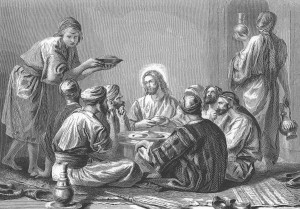
“This man welcomes sinners and eats with them.” Luke 15:2.
Jesus was always able to confront the Pharisees with the Truth about their religious practices and how these practices connected with the heart. While Jesus made judgments on the actions of people, He left the judgment of people to God.
Today, society uses the term ‘tolerant,’ to mean that we cannot judge the acts of people or people themselves. But that is not exactly right. Actions of people can be sinful and endanger a person’s spiritual or material life and thus endanger the common good.
Fraternal correction, means bringing the Truth about a persons actions and whether or not these actions reflect the intentions of the heart something Jesus did.
The Prodigal Son acted selfishly and squandered his inheritance. He must live with the consequences of his actions, as we all must. But when he repented his father did not scold him, or make judgments. The father embraced him with compassion; in other words, the father took upon himself the sufferings of the son and shared his pain.
The father was not tolerant of the son. He did not approve of his actions. Rather the father loved the son. Tolerance is not pretending wrong things are right. Tolerance is acknowledging people as worthy of human dignity while being responsible for the consequences of their actions.
Sometimes we can be like the Pharisees can’t we? We can fall into the same trap of drawing conclusions about people with little or no information about them. They probably aren’t going to be fishermen form Galilee, or lepers or tax collectors, but they could be our neighbor, someone at school or in our parish, someone with problems we can’t even imagine or even someone who is pretending to know the real truth when in fact they are denying what is right for selfish reasons.
People deserve our patience and love rather than our harsh judgment and gossip. Perhaps taking the example of Jesus and sharing a meal with them would go along way in understanding others rather than excluding or isolating or alienating them.
After all, Jesus “welcomes sinners and eats with them.” How could we do less?